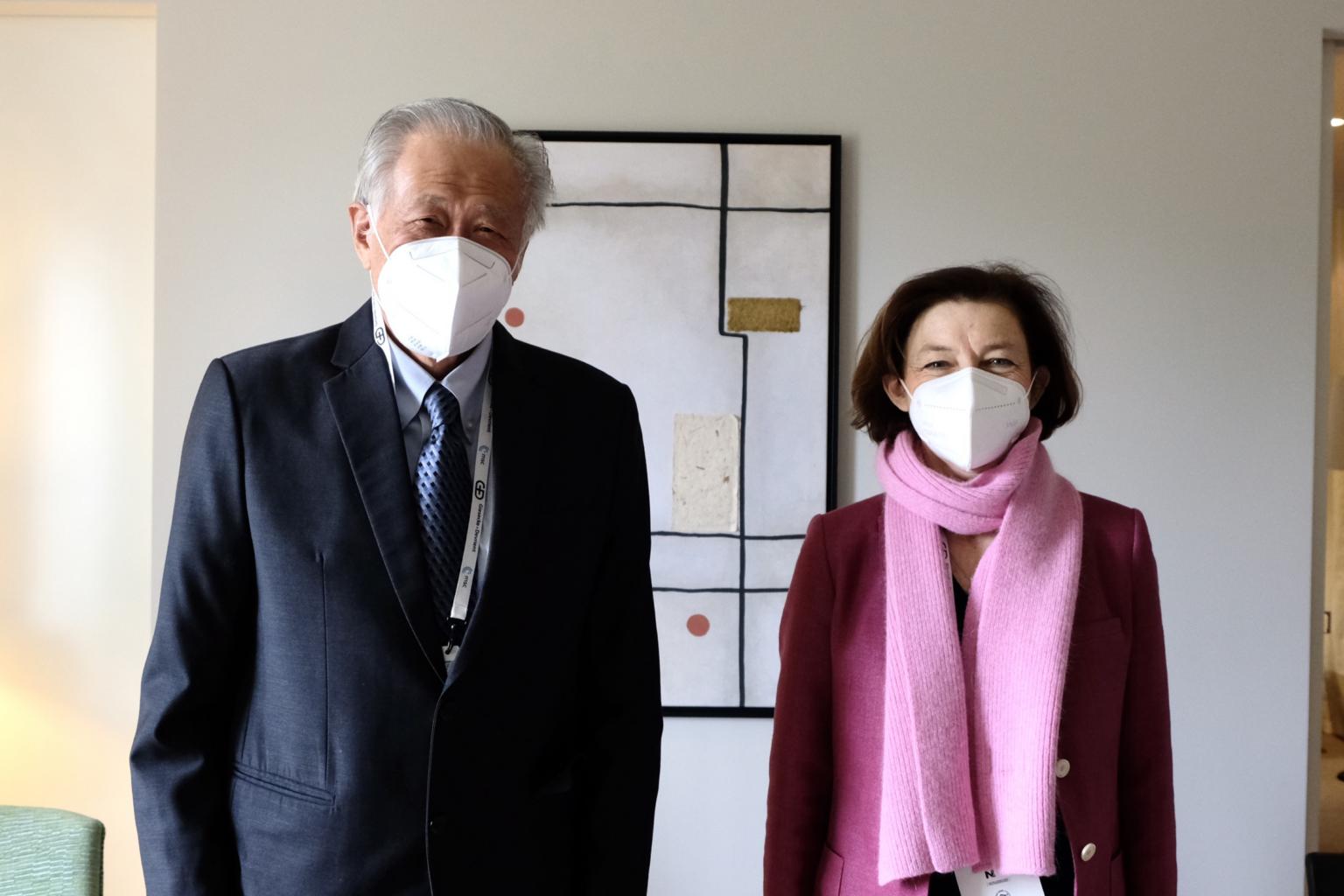Only time will tell if international partnerships can deliver global stability: Ng Eng Hen
Sign up now: Get ST's newsletters delivered to your inbox
Follow topic:
SINGAPORE - Only the strength of collective political will and the passage of time will indicate if various partnerships between countries are adequate to provide peace and stability globally, said Singapore's Defence Minister Ng Eng Hen in Munich on Saturday (Feb 19).
He noted that Singapore sits on one of the busiest global maritime routes, at the crossroads of Asia and the rest of the world, and so it is vital to the Republic that stability is maintained and international laws like the United Nations Convention on the Law of the Sea are upheld.
Currently in Germany for the three-day Munich Security Conference which ends on Sunday (Feb 20), Dr Ng gave a speech as part of the Maritime Security Roundtable on Saturday, where maritime security cooperation in the Indo-Pacific region was discussed.
He said Singapore welcomes big and middle powers that want to add to the stability in this region.
"For that reason, Changi Naval Base facilitates the presence of foreign militaries from countries like the United States, the United Kingdom, China, Japan, Germany, France and India, among many others," he added.
He highlighted inclusive military partnerships like the Asean Defence Ministers' Meeting-Plus (ADMM-Plus), which is made up of close to 90 per cent of the world's military forces.
The annual ADMM-Plus is a meeting of defence ministers of 10 Asean countries and eight dialogue partner countries, including Australia, China and India.
Said Dr Ng: "ADMM-Plus has an Experts' Working Group on Maritime Security to promote the practice of confidence-building, and measures to reduce the risk of miscalculation."
He noted that existing alliances or new partnerships are being stepped up around the world, citing the establishment of the Australia-UK-US Trilateral Security Pact in September last year.
"Meanwhile, China conducted its third joint naval drill with Russia and Iran in the northern Indian Ocean. China has also deepened its relations with Asean, elevating the status to a comprehensive strategic partnership in November 2021," added Dr Ng.
Singapore, too, has strengthened relationships with countries by establishing centres such as the Changi Regional Humanitarian Assistance and Disaster Relief Coordination Centre.
The Counter-Terrorism Information Facility also helps to facilitate information sharing, strengthen military-to-military coordination and enhance domain awareness for the Indo-Pacific region, he noted.
"We are grateful for the partnerships and contributions of many countries in these initiatives," he said.
On "strategic crossroads" that could trigger big shifts, he noted the possibility of competing trade and technology blocs arising, where tariffs or economic and financial exclusions may be applied depending on which camp any country belongs to.
"Even now, more than 100,000 soldiers have gathered around Ukraine, and the world watches anxiously over further movements there. That itself will be a disruptive event for all of us," he said.
Dr Ng met French Minister of Armed Forces Florence Parly on the sidelines of the conference, where they reaffirmed the strong and broad-based defence relations between the countries, and their commitment to strengthening bilateral defence cooperation.

On Sunday, he met India Minister of External Affairs Subrahmanyam Jaishankar and expressed Singapore’s commitment to facilitate a deeper partnership between Asean and India.
He also exchanged views with Canadian Minister of Defence Anita Anand on the political and security developments in Europe and the Asia-Pacific.
In his speech, Dr Ng noted that climate change is an existential challenge that the world has to tackle.
He said: "As leaders, we all know that known and unknown unknowns can tip the balance. What can we do?"
"Are these multinational efforts adequate to provide peace and stability for our region? Only time, and collective political will, will tell."

